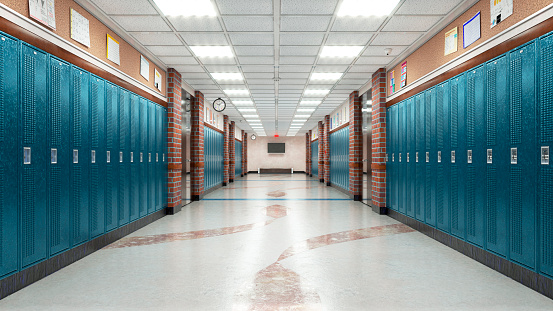Let’s talk about imposter syndrome. Most of us have been there at some time or another. I experienced it on occasional parent’s night and once while driving the school van for a field trip. It would only hit me on some parent’s night, I guess to keep me on my toes. While I was comfortable teaching my students, facing their parents was a completely different and unnerving experience. “Who put me in charge?” and “Why would anyone trust me with their children?” were some of the thoughts that ran through my head. The other time I experienced an acute attack of imposter syndrome was taking a small group of my select seniors to a local museum to install sculptures we had been working on for a program the museum runs. I was able to use a van the school has for a vocational program and there was something about 5 foot 2 me driving a van filled with teens that made me feel a strong bout of imposter syndrome. Others seem to have more faith in my ability to drive a van loaded with teens than I had.
So, for any of you who are unfamiliar with the concept, imposter syndrome according to Merriam-Webster dictionary defined as “A false and sometimes crippling belief that one’s successes are the product of luck or fraud rather than skill. A pervasive feeling of self-doubt, insecurity, or fraudulence despite often overwhelming evidence to the contrary.” This may manifest in an art teacher having doubts about his or her talent and abilities in art. An art teacher may feel they never have it “all together” compared to other teachers who seem to be doing it all effortlessly. Or, and this one is super common, you see other teachers’ great work on Instagram or Facebook and you feel like you must be doing something wrong because your students’ work isn’t as good. Or a student is so talented you fear you will not be able to help them grow artistically.
I am here to tell you, you are fine. Those feelings are normal. You will gain confidence in yourself and your skills in art and in classroom management. As a result, your imposter syndrome feelings will lessen over time. I promise. It gets better. Meanwhile, here are tactics to help though.
Know that we are all winging it!
I guarantee that every teacher you meet has faked it at some point. Maybe they tapped danced through a lesson they weren’t confident in or improvised part of a lesson on the spot. After a while, you realize and can admit that you learn right along with your students. Instead of panicking when you make a mistake or a lesson doesn’t go to plan, you ask your students to theorize what went wrong and brainstorm a new approach.
While newbies to teaching may feel impostor syndrome more frequently or acutely, know it can happen at any time in a career. After twenty years in the classroom, I went back to school and then decided to create My Art Lesson. While starting this website I took a six-week middle school position covering for a teacher recovering from surgery. It had been a long time since I taught middle school and to boot, the class had a substitute before me that was lax so I was fighting an uphill battle. At the end of my six weeks, a teacher across the hall came over and told me he heard a lot of my teaching and complimented my tenacity in reining the students back in and my fortitude in plowing forward. In front of a younger art teacher who I shared the room with, I thanked him and admitted most days I wanted to cry and the young teacher was flabbergasted. Time and experience will better you as a teacher but part of it is always improvisation that you also get better at hiding.
Turn down the negative talk
Most of us are all too familiar with our internal voice, the one that tells you what a bad job you did teaching, say, negative space to your first-period studio art class. Instead, try some positive self-talk. Like, “First period didn’t grasp it well but I teach that lesson two more times today. What can I do better for the next class?” If a lesson failed, you get another shot at it tomorrow too. There is always time to regroup and revisit a concept as those students just keep coming all year long. Tell yourself frequently “I know more than my students.”
Also, think of yourself as the artist in residence. You have a degree, you have skills, and you certainly know more about art and art history than your students do and probably more than administration as well. You may even encounter students who may be extraordinarily talented and you will wonder if you are up to the task of teaching them but you can. As one art teacher wrote, “Many times I have students whose skill surpasses mine. I take the approach that I am their art coach, not their teacher.”
Let imposter syndrome light a match under you
Imposter syndrome is not always a bad thing. Look to strengthen your areas of weakness. Maybe you were hired to teach Ceramics but one year they need you to teach a section of a drawing class but you don’t feel confident in your drawing skills. Use that energy to take a professional development class over the summer and brush up on your skills.
Instead of fearing criticism, solicit student feedback. Use the information to reflect and retool your teaching strategies. Hone what you do best and what you can contribute to your art program.
Look for student successes to boost your confidence. Did the senior who you helped develop their portfolio get into their “reach” art school? Pat yourself on the back. Is your art club thriving? Congratulations. Did your noisiest class actually have one minute where everyone was actually dead quiet while they did a blind contour drawing? That’s a victory for sure, feels good, doesn’t it?
Don’t compare apples to oranges
When you look at artwork from other teachers and schools, remember that not all things are equal. Other schools might have more student art time in elementary and middle school art so it makes sense that your freshman may not be as skilled. Or maybe that winning work at the Congressional artwork was done by a student who goes to a private school and takes private art classes every summer. Sometimes it takes me 2-3 times teaching a project before I get my best results, and that makes sense, right? Plus, we all know FB and Instagram posts aren’t the true barometer of the quality of an art program. What an art teacher chooses to share is likely to be very selective. We all know that images can be touched up and that art teachers are presenting the very best of student work typically. So, give yourself some grace as both a person and a teacher!
How has imposter syndrome affected your career? Looking back, are there things you might have said or done differently had you not felt this way?




